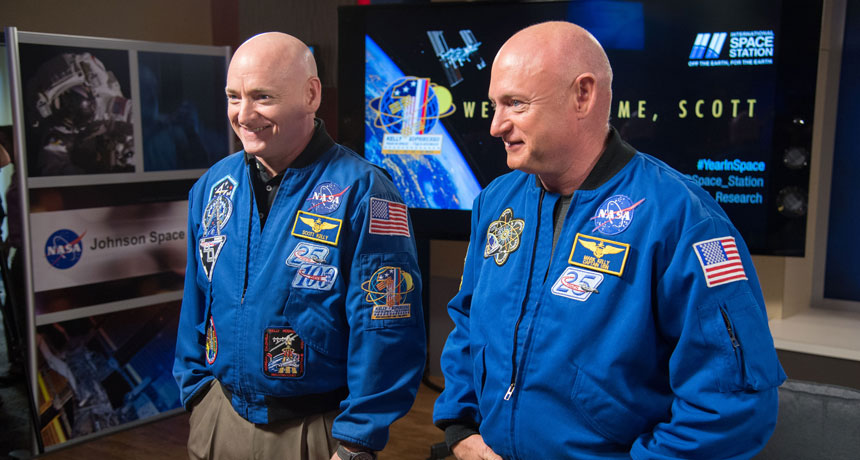NASA’s Twins Study reveals effects of space on Scott Kelly’s health
A comparison with his twin looks at the impact of long-term spaceflight on the human body

TWINS APART Astronaut Scott Kelly (left) spent a year in space on the International Space Station while his identical twin brother, astronaut Mark Kelly (right), remained on Earth. They were part of a landmark study to help researchers understand how spaceflight affects the human body.
NASA